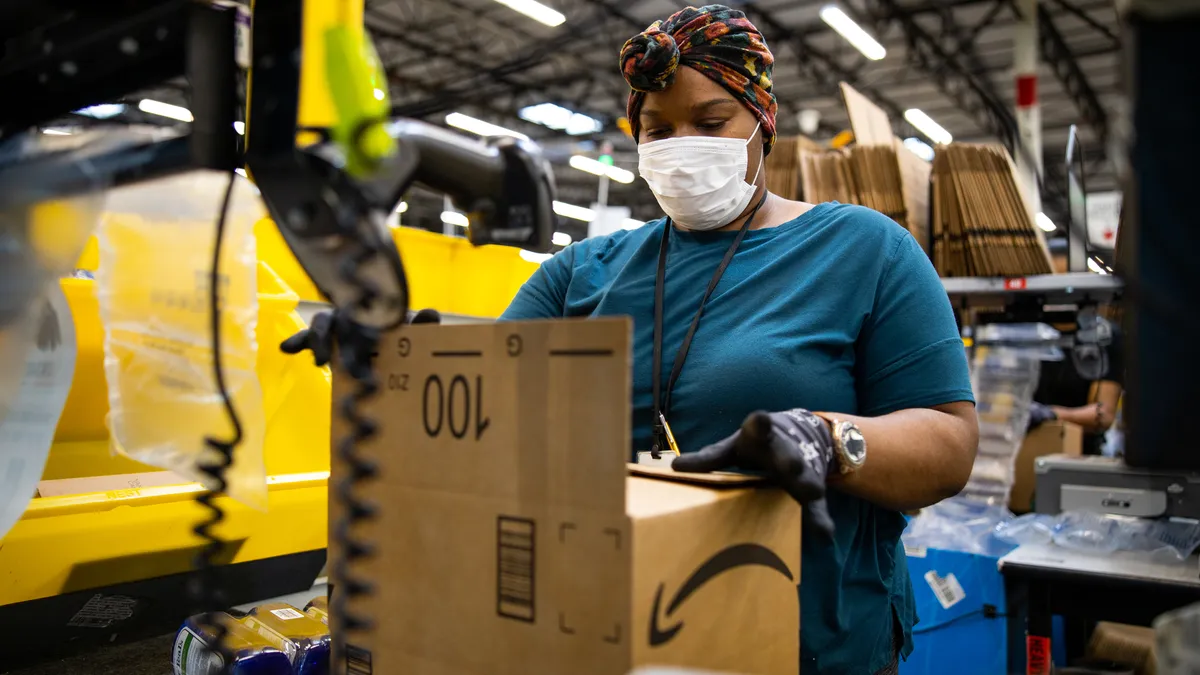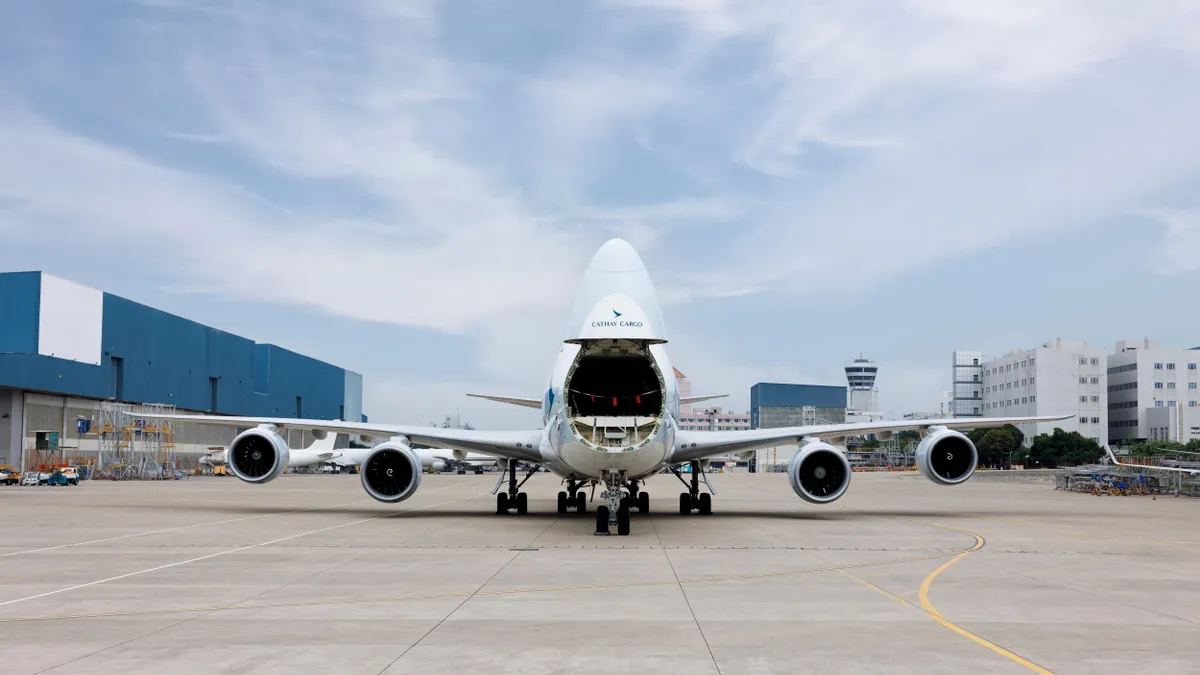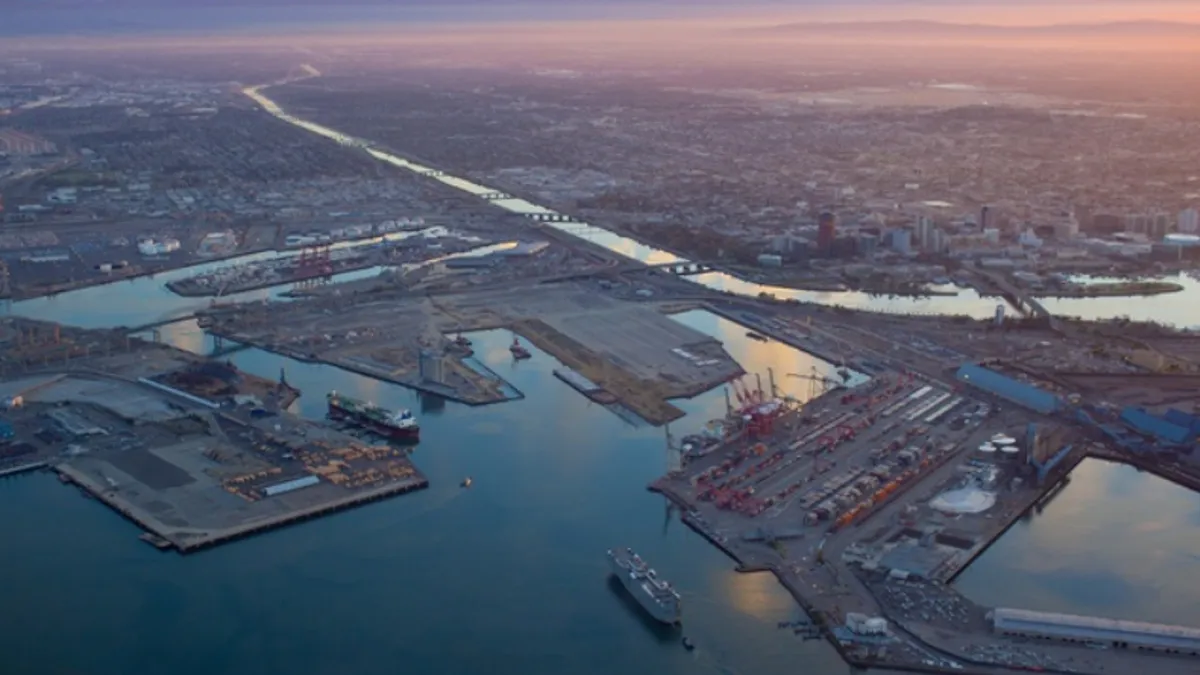Supply Chain by Amazon is poised to be a major draw for third-party sellers looking to simplify their logistics — if they can place enough trust in the e-commerce giant.
The end-to-end suite of services, launched last month, is billed as a one-stop shop for sellers' supply chain needs, helping them avoid juggling multiple logistics providers. Amazon can pick up inventory from manufacturing facilities, ship cross border, store and replenish inventory and deliver to customers, among other services.
Few companies can rival Amazon's robust supply chain network and logistics capabilities, but it will take more than infrastructure for sellers to fully embrace Supply Chain by Amazon. Experts say a key for its success is to ensure sellers are comfortable enough to willingly cede more management of their supply chain to Amazon. One concern Amazon may need to assuage is how it handles data from its users.
"Now they're going to have this visibility to all sorts of information on how they would monetize this," said Michael Dominy, a Gartner analyst focused on supply chains. "Part of what I'm giving away is data about me and my flows."
Despite scrutiny, a potential upside for sellers
Amazon has long faced scrutiny of how it handles seller data, and the recent lawsuit from the Federal Trade Commission also raises issues with the company's practices. The complaint alleges that the company corners sellers into using its services and has “failed to adequately protect sellers’ commercially sensitive data, exposing this data to theft and appropriation.” Amazon has pushed back against the FTC's allegations.
"Amazon is a trusted partner for millions of sellers worldwide because we provide the most effective set of services for creating thriving, successful businesses," said David Zapolsky, Amazon’s SVP of global public policy and general counsel, in a statement on the company’s website.
Despite the increased scrutiny, sellers have plenty of reasons to lean on Amazon's expanding supply chain offerings. The fear of giving the company more control is decelerating among brands, as companies face difficulties raising capital and improving their own supply chain efficiencies in an uncertain economic environment, said Matthew Hertz, co-founder of Second Marathon, a consultancy that helps e-commerce brands find fulfillment providers.
"If we're able to save $1 or $2 or a few dollars an order, even if it means leveraging the 'big, bad, evil' Amazon — at some point that's worthwhile, right?" Hertz said. "If it's less expensive and it's a better service, then it's really hard to not embrace it."
Supply Chain by Amazon: A fit for all businesses?
Which sellers embrace Supply Chain by Amazon may also depend on the size of their business.
The suite of services presents a high upside for smaller companies, as it helps them more easily comply with international trade rules and regulations, Mustafa Cokol, director of global logistics at consumer goods company Thrasio, said in a LinkedIn post. For large sellers, it may not work as an all-encompassing solution, but it can complement their existing arrangements with traditional freight forwarders and carriers.
One potential gap for Supply Chain by Amazon is its fit with mid-sized sellers, Cokol said, as these businesses would want help in their sourcing from countries beyond China. The cross-border transportation component of the service, Amazon Global Logistics, currently allows sellers to ship cargo from mainland China and Hong Kong.
Cokol added that sellers will need to collaborate with other logistics providers for air cargo services.
Supply Chain by Amazon plans to bolster its capabilities further in the near future, which includes growing its number of origin points and making more products eligible for the service, executives said at the company's annual third-party seller conference last month.
The question remains if Supply Chain by Amazon will ever extend its reach to businesses that don't sell on Amazon. For now, it is going for the "low-hanging fruit" of third-party sellers, many of which aren't big enough to grab most forwarders' attention, Stephanie Loomis, head of ocean freight for the Americas at Rhenus Logistics, said in a LinkedIn post. But that could change in the future.
"I highly doubt that Amazon has its sights on being the next Kuehne+Nagel or DHL, but given their sheer size, market dominance, and enormous customer exposure, even having them nibbling around the edges of our industry, makes me a little nervous," Loomis said.























